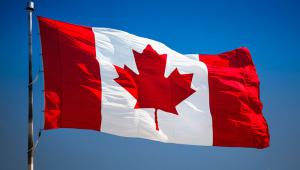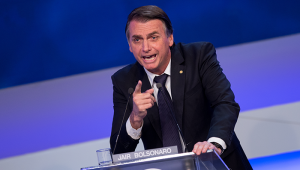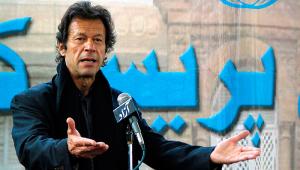Official figures released on Wednesday showed a contraction of 0.3% in the first few months of this year compared to the last quarter of 2015, marking a 5.4% decline from the first quarter of last year.
However, the figures were better than many had anticipated.
Craig Botham, emerging markets economist at Schroders, said: “Brazil’s first quarter GDP growth sounds devastatingly bad, but such is the state of the Latin American economy that this is actually an improvement.
“The figures were better compared both to expectations and last quarter’s performance. Still, -5.4% is hardly a cause for celebration, and 2016 will not be a banner year for the economy.”
The figures show this modest bump in performance was driven by growth in net exports – a result of weaker currency and lower unit labour costs – and stronger government spending in the run up to outgoing president Dilma Rousseff’s impeachment.
On top of its worst recession in decades, Brazil is embroiled in a political crisis sparked by a corruption scandal that has implicated many of the country’s political top brass, including Rousseff, who has been removed from office pending an impeachment trial on charges of breaking budget rules.
Botham said the increased public spending of the past few months “at least partially reflects” Rousseff’s attempts to shore up support as this storm raged around her and threats of impeachment became increasingly salient.
The formation of a new government following Rousseff’s removal has perhaps contributed to a rebound in business confidence in the economy, with figures showing a slight boost in investment compared to the end of last year.
However, if this is correct, Botham said, the revival is “somewhat hostage to further political developments”, threatening the tentative recovery.
The new government, headed by former vice president Michel Temer, has not had an easy ride so far, with pro-Rousseff protests and the corruption scandal continuing to take casualties.
Earlier this week, Brazil’s transparency minister was forced to resign after leaked recordings suggested he was trying to derail the country’s corruption investigation.
The boost brought by increased government spending is also unlikely to continue, with Temer planning a round of austerity to help balance the books.
“For now, we think there is sufficient political incentive for the passage of limited reforms, and consequently this recovery should extend, but plateau at a low level next year. However, if the Temer government’s struggles become more serious, we will have to reassess our view,” said Botham.
Earlier this week, the OECD cut its growth forecasts for Brazil, stating it now expected the country’s economy to contract by 4.3% this year and unemployment to increase further.
It cited “deep political divisions” and ongoing corruption revelations as the reason for revising its outlook.













